What makes a quantum computer more powerful than a classical computer? It’s a surprisingly subtle question that physicists are still grappling with, decades into the quantum age.
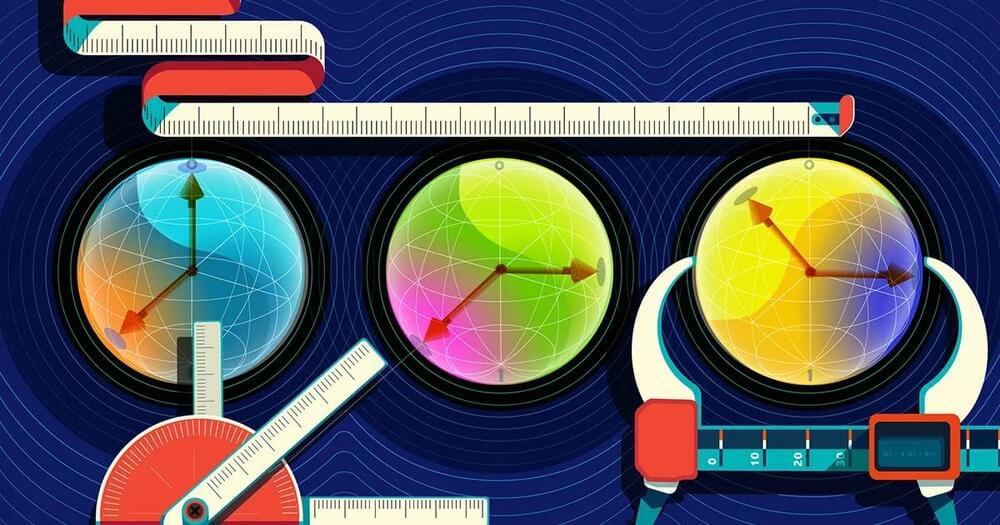


As Shor looked for applications for his quantum period-finding algorithm, he rediscovered a previously known but obscure mathematical theorem: For every number, there exists a periodic function whose periods are related to the number’s prime factors. So if there’s a number you want to factor, you can compute the corresponding function and then solve the problem using period finding — “exactly what quantum computers are so good at,” Regev said.
On a classical computer, this would be an agonizingly slow way to factor a large number — slower even than trying every possible factor. But Shor’s method speeds up the process exponentially, making period finding an ideal way to construct a fast quantum factoring algorithm.
Shor’s algorithm was one of a few key early results that transformed quantum computing from an obscure subfield of theoretical computer science to the juggernaut it is today. But putting the algorithm into practice is a daunting task, because quantum computers are notoriously susceptible to errors: In addition to the qubits required to perform their computations, they need many others doing extra work to keep them from failing. A recent paper by Ekerå and the Google researcher Craig Gidney estimates that using Shor’s algorithm to factor a security-standard 2,048-bit number (about 600 digits long) would require a quantum computer with 20 million qubits. Today’s state-of-the-art machines have at most a few hundred.
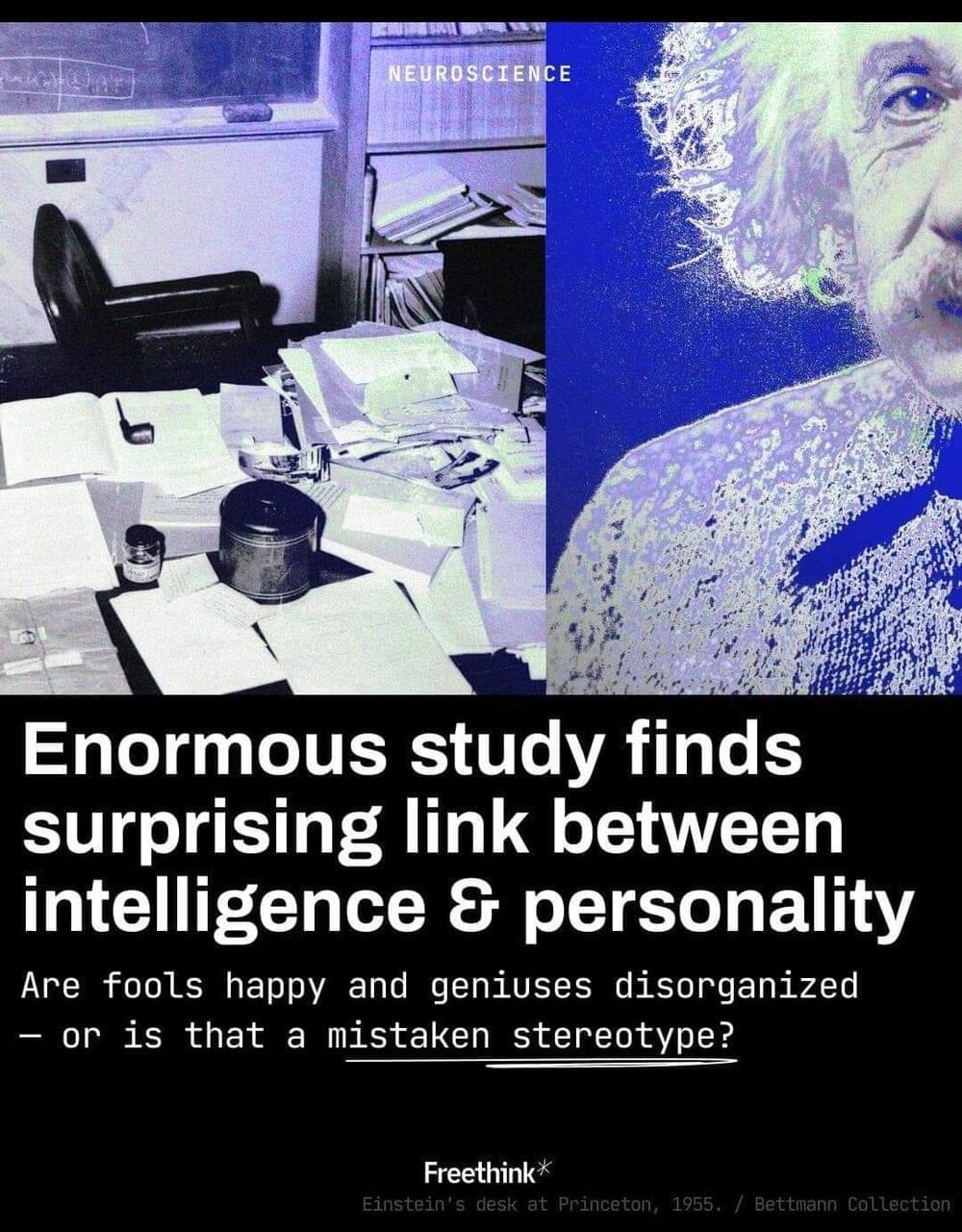
From every study they could find, including research that was never published, research by the military and private businesses, and research that had sat dormant on hard drives for decades to find out how personality and intelligence relate to each another.
Fourteen years later, the massive data catalog has dropped. It contains 79 personality traits and 97 cognitive abilities from 1,300 studies from over 50 countries including over 2 million participants. And an early meta-analysis published in the Proceedings of the National Academy of Sciences shows that personality and intelligence relate in some surprising ways.
Personality describes how someone generally thinks, feels, and behaves. Intelligence (termed cognitive ability by the researchers) describes how well someone can understand and apply information.
Here are 3 of the 5 findings:
1. Extraversion, a measure of sociality and enthusiasm, was only negligibly related to intelligence overall. However, the activity facet more strongly correlated, and (surprisingly) sociability had a small negative relationship with some cognitive abilities.
2. Neuroticism encompasses negative emotionality, which can inhibit advanced thinking. Despite the trope of the moody genius, perhaps it’s no surprise that higher levels of neuroticism predicted lower levels of intelligence, albeit weakly. The uneven temper and depression facets were particularly strong predictors of decreased intelligence.
3. Conscientiousness, a measure of self-regulation and orderliness, correlated positively with intelligence overall. But some facets, including cautiousness and routine seeking, predicted lower cognitive abilities.
For the rest of the findings, along with something interesting they learned about extraversion, click here: https://www.freethink.com/society/study-personality-intellig…jjjrtebdkm.
Article by Elizabeth Gilbert.
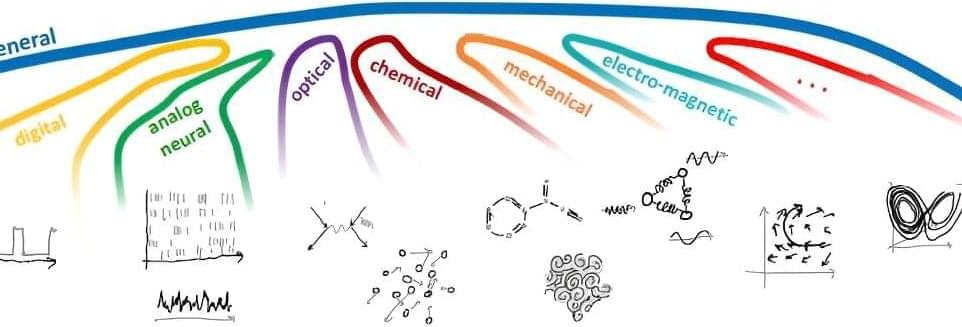
There is an intense, worldwide search for novel materials to build computer microchips with that are not based on classic transistors but on much more energy-saving, brain-like components. However, whereas the theoretical basis for classic transistor-based digital computers is solid, there are no real theoretical guidelines for the creation of brain-like computers.
Such a theory would be absolutely necessary to put the efforts that go into engineering new kinds of microchips on solid ground, argues Herbert Jaeger, Professor of Computing in Cognitive Materials at the University of Groningen.
Computers have, so far, relied on stable switches that can be off or on, usually transistors. These digital computers are logical machines and their programming is also based on logical reasoning. For decades, computers have become more powerful by further miniaturization of the transistors, but this process is now approaching a physical limit. That is why scientists are working to find new materials to make more versatile switches, which could use more values than just the digitals 0 or 1.

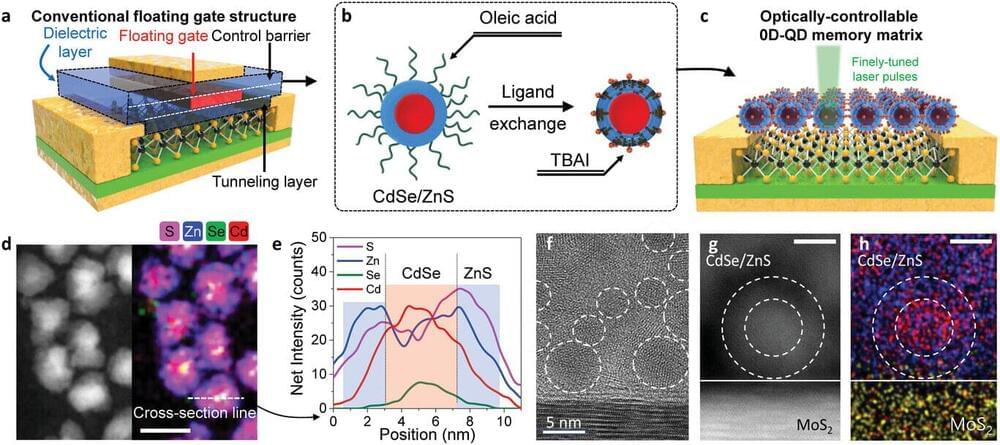
We live in an era of data deluge. The data centers that are operated to store and process this flood of data use a lot of electricity, which has been called a major contributor to environmental pollution. To overcome this situation, polygonal computing systems with lower power consumption and higher computation speed are being researched, but they are not able to handle the huge demand for data processing because they operate with electrical signals, just like conventional binary computing systems.
Dr. Do Kyung Hwang of the Center for Opto-Electronic Materials & Devices of the Korea Institute of Science and Technology (KIST) and Professor Jong-Soo Lee of the Department of Energy Science & Engineering at Daegu Gyeongbuk Institute of Science and Technology (DGIST) have jointly developed a new zero-dimensional and two-dimensional (2D-0D) semiconductor artificial junction material and observed the effect of a next-generation memory powered by light.
Transmitting data between the computing and storage parts of a multi-level computer using light rather than electrical signals can dramatically increase processing speed.

Summary: Scientists have successfully determined the genomic composition of octopuses, unveiling a whopping 2.8 billion base pairs across 30 chromosomes. This was a result of comprehensive, computer-assisted genome studies and comparisons with other cephalopod species.
This high-quality reference sequence paves the way for understanding octopus biology and tracing its evolutionary trajectory.
The findings, which shine a light on the dynamic evolutionary history of the octopus genome, will enrich research in neurobiology, behavior, and development.
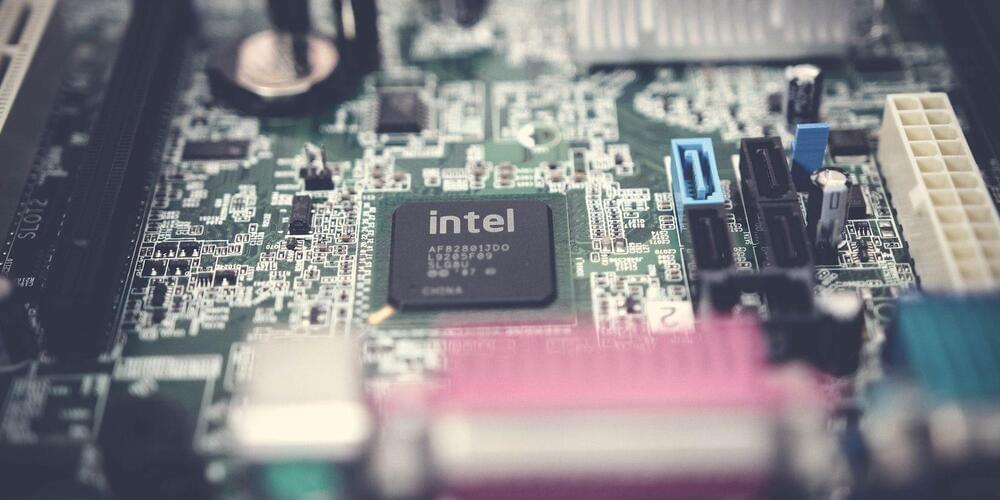
Can someone access your device even when it’s turned off? The frightening answer is, yes.
In an age where remote access is increasingly common, understanding the technology that makes it possible is crucial. One such technology is Intel’s Active Management Technology, a hardware-based feature that allows for impressive remote capabilities, even when your computer is turned off. While it’s a boon for IT administrators, it can be a potential risk if not configured correctly. So how does Intel AMT work? How can it be used? And how can you protect against it?
Humanity is a type 0 civilization. Here’s what types 1, 2, and 3 look like, according to physicist Michio Kaku.
Is anybody out there? Renowned physicist Michio Kaku discusses we could identify and categorize advanced extraterrestrial civilizations.
According to Kaku, while recognizing intelligence in space is challenging, Quantum computers may be able to help sift through data for signals of intelligence, similarly to how we analyze patterns in dolphin communication.
Go Deeper with Big Think:
►Become a Big Think Member.
Get exclusive access to full interviews, early access to new releases, Big Think merch and more. https://members.bigthink.com/?utm_source=youtube&utm_medium=…escription.

Computer scientist Brent Seales and a team of researchers at the University of Kentucky are working to “digitally unwrap” ancient papyri from the Herculaneum library that were carbonized by the eruption of Mount Vesuvius in 79 CE.
Read about it here:
Since 2019, NEH has supported work by computer scientist Brent Seales and a team of researchers at the University of Kentucky in efforts to “digitally unwrap” ancient papyri from the Herculaneum library that were carbonized by the eruption of Mount Vesuvius in 79 A.D.
These fragile coal-like scrolls have been completely unreadable for more than two centuries, but NEH funding has helped researchers refine computerized techniques to digitally unroll X-rayed layers of the compacted papyri to try to discern and decipher their carbon-based ink writings.
The 1,800 carbonized papyrus scrolls that were discovered in the 18th century in Herculaneum represent the only library from the classical world that has survived in its entirety, and contain significant philosophical and literary texts from ancient Greek and Roman scholars.